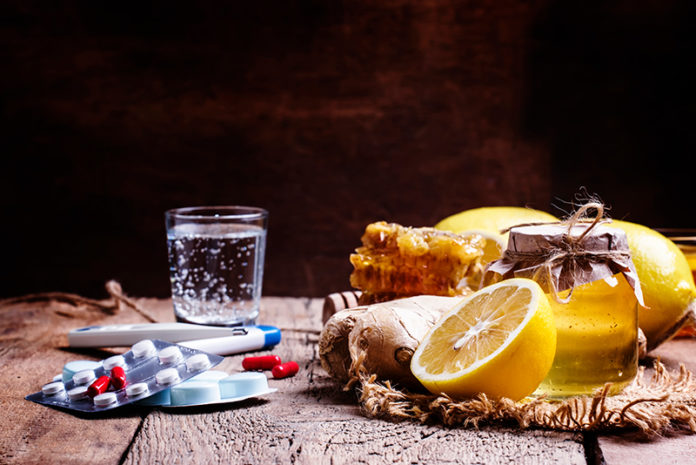The COVID-19 pandemic – which is not a form of the flu — has overshadowed news about the flu that we normally would have had this season. Week 11 of “flu season” ended March 14. But moderate influenza activity is still evident.
The Centers for Disease Control (CDC) estimates that as of March 14, there were at least 38 million flu illnesses, 390,000 hospitalizations and 23,000 deaths from flu in the United States so far this 2019-2020 flu season.
Most noteworthy is that while laboratory-confirmed influenza hospitalization rates for the U.S. population were moderate, the hospitalization rates for children, 4-years-old and younger, and for adults, 18 to 49-years-old, are now the highest on record for these age groups, surpassing even the rates reported during the 2009 H1N1 pandemic.
Many People Still Avoid Flu Vaccinations
While the number of children and adults getting flu shots is increasing, many people avoid them.
Based on the CDC’s most recent tallies, 45.3 percent of adults 18-years-old and older received vaccinations during the 2018-2019 season – up from 37.1 percent during the 2017-2018 season. For children 6 months up to 17 years, 62.6 percent receive vaccines. Which was 4.7 percent more than the year before.
Still, controversy stops many people from utilizing vaccinations. Debates range from the vaccines being ineffective for a strain that does not materialize, to flu shots making people ill, to the possibility that vaccinations might cause developmental delays in children. Many people also have raised concerns about vaccines containing mercury, which might cause other health problems.
Natural Measures Can Help You Avoid and Treat the Flu
Regardless of whether you choose vaccination. It only makes sense to follow natural steps to avoid getting the flu, in addition to treating it if you do. Keep in mind that while COVID-19 and influenza are not the same thing, they are spread the same way – through contact with germs that spread when those who are infected cough, sneeze or touch something when they have germs on their hands.
Therefore, frequent hand-washing is a must, in addition to keeping your distance from someone who potentially has the illness.
Year Round Immune System Support is the First Step
Supporting your immune system with proper nutrition and supplements is important year-round. Daily doses of Vitamin C and herbs such as astragalus can enhance immune system function. Astragulas, usually taken as a tea, is an antiviral and immune-strengthening herb that is in traditional Chinese medicine.
For the Extra Boost that Flu Season Calls For, Consider These Options:
One that is getting a lot of attention is Black Elderberry. In a few small studies, one proprietary formulation of Elderberry extract sold under the name Sambucol® has shown an ability to fight flu symptoms.
In one randomized study of 60 adults with flu-like symptoms, the group that took 15 mL of Elderberry syrup four times a day saw symptoms clear up on average four days earlier than those who took a placebo syrup. Another study tested its effectiveness in air travelers. The group that took Elderberry syrup had less severe symptoms and a shorter cold duration than the control group.
It has not yet been shown in human studies whether Elderberry can prevent flu altogether.
An in-vitro study published in the Journal of Functional Foods showed elderberry to have an inhibitory effect at all stages of infection, and a significantly stronger effect on the late-stage of infection. The antiviral activity of elderberry on influenza was strongest in pre-treatment, during infection and post-infection, rather than during infection only. The study confirmed that elderberry exerts its antiviral activity on influenza in a number of ways. Including suppressing the entry of the virus into cells and preventing viral transmission to other cells.
More Flu-Fighters From Nature
Scientific research also backs the use of many foods and herbs to help prevent or lessen the effects of colds and flu. Here are some examples:
Garlic: Garlic earns high marks as an antiviral. Cutting garlic cloves releases a sulfur compound known as allicin, which has antiviral, antibacterial and anti-fungal properties. Note: Allicin only comes from raw garlic, so do not cook it.
Ginseng: A 2005 Canadian study concluded that a daily dose of 400 milligrams reduced colds in adults. A University of Connecticut team repeated the study and reached the same conclusion. The Connecticut team’s study showed ginseng reduced the effects of the cold by half.
Ginger: In addition to many anti-viral components, ginger contains chemicals known as sesquiterpenes that have been shown to alleviate and/or prevent rhinoviruses, which cause the common cold.
Plan Your Best Defense
This year, dangers posed by the flu and other viruses are looming heavily. Staying well depends on many circumstances. But supporting your immune system naturally is the best way to strengthen your first line of defense.








